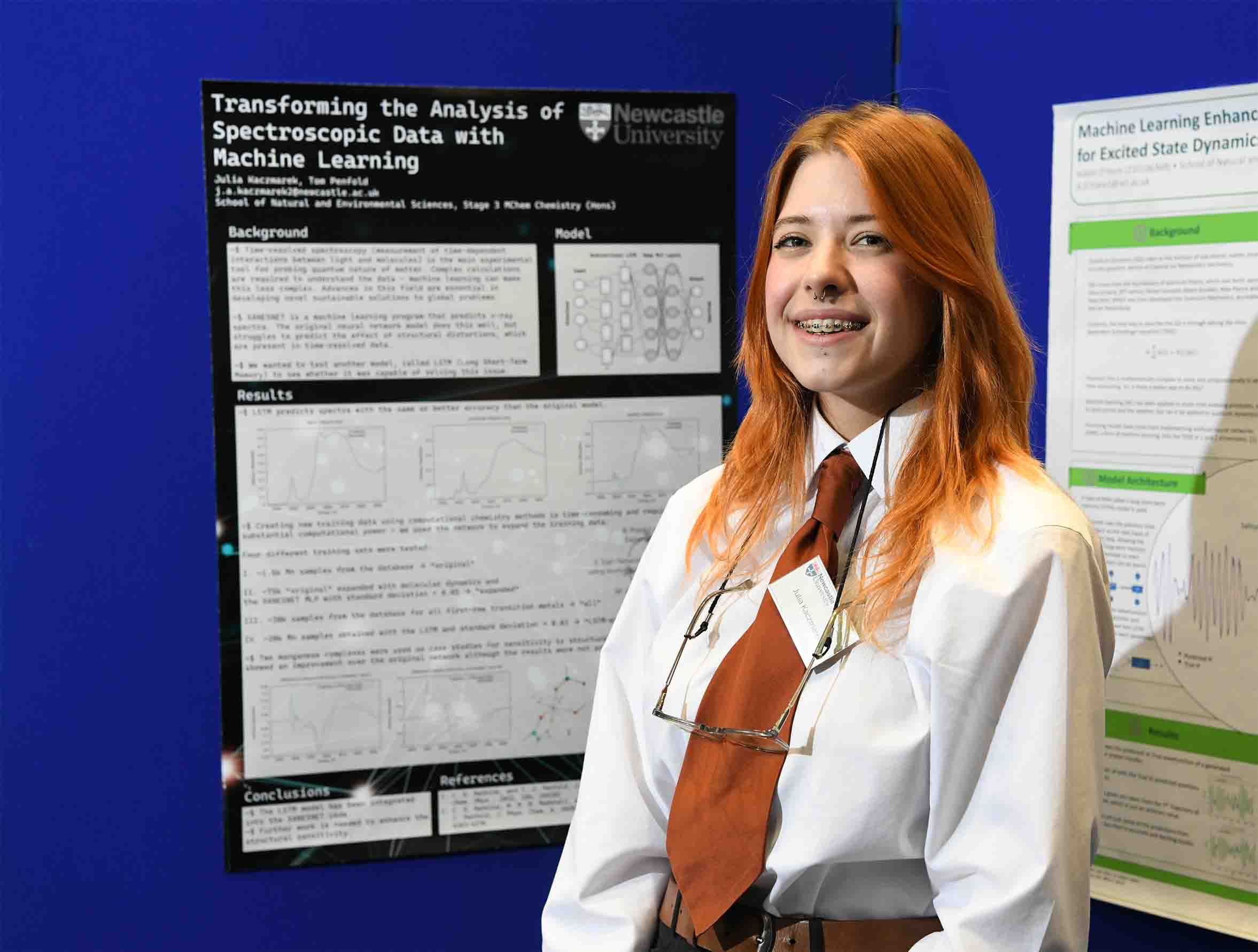Participants
 Julia Kaczmarek
Julia Kaczmarek
Time-resolved spectroscopy is the main experimental tool used when investigating the quantum nature of matter. Although the data obtained is very useful, it can be very complex and difficult to understand. Theoretical tools are used to aid understanding. Making the connection between experiment and theory can result in considerable computational cost. Machine learning can and has been used to predict x-ray spectra from molecular structures. However, the original neural network struggled with small structural deviations, which must be present in time-resolved data, as the molecule is in motion. The scope of this project was to employ a different neural network model (LSTM) to investigate whether it could overcome this shortcoming both with the initial training dataset and an expanded one. The results showed that the LSTM model had the same or better performance when predicting spectra in general compared to the previous model. Furthermore, the model did produce relatively better predictions when faced with structural distortions however the results were inconsistent and unreliable, hence further work is necessary.
Funded by: Newcastle University Research Scholarship
Project Supervisor: Professor Tom Penfold
